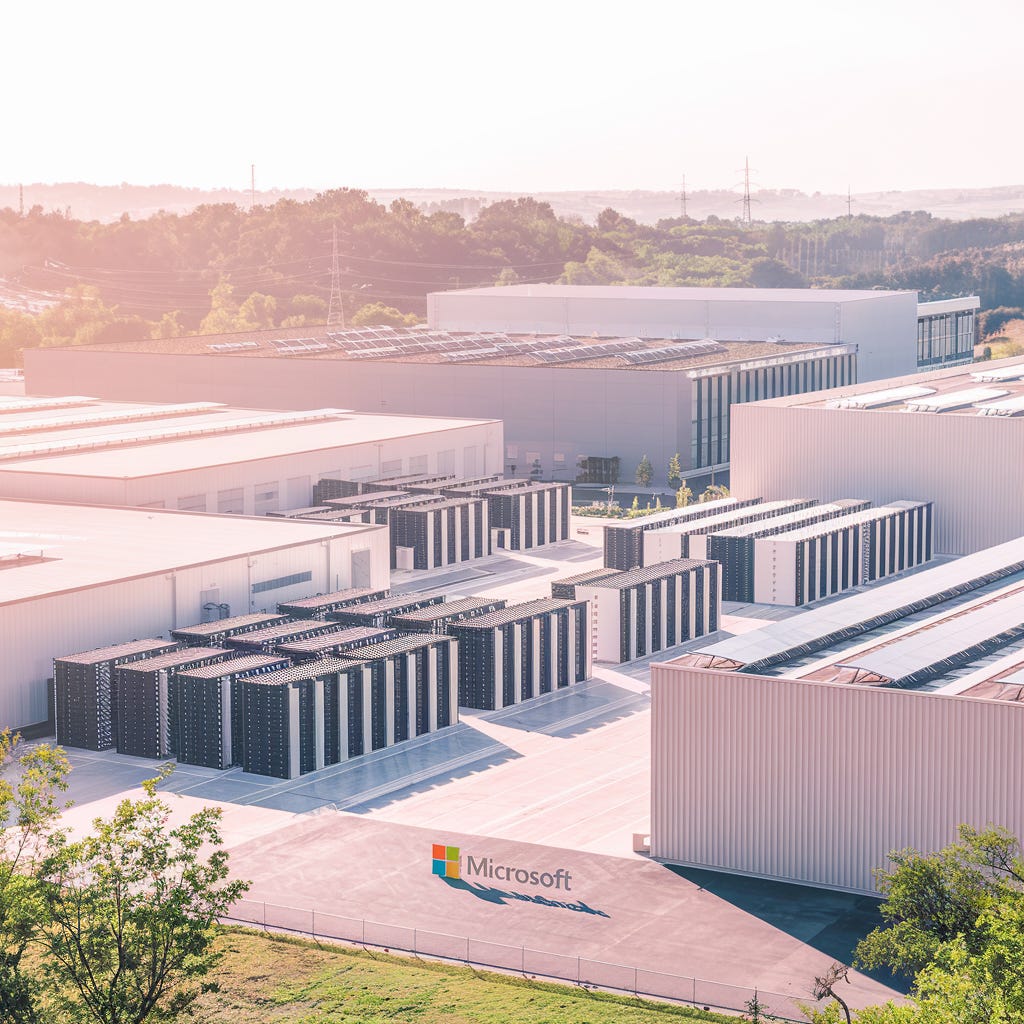Microsoft’s Extra ZAR 5.4B Investment in South Africa
—And Why It’s More Than Just Cloud Expansion
AI is reshaping industries, but without hyperscale cloud infrastructure, even the most advanced enterprises will struggle to compete.
Microsoft is making a bold move to secure South Africa’s AI future, committing an extra ZAR 5.4 billion ($298 million) to expand cloud and AI infrastructure.
This investment isn’t just about increasing server capacity—it’s about cementing South Africa’s position as the AI and cloud powerhouse of Africa.
Why This Investment Matters
This expansion builds on Microsoft’s ZAR 20.4 billion ($1.12 billion) investment over the past three years, which established Azure cloud regions in Johannesburg and Cape Town.
Now, with a second cloud region in Centurion, Microsoft is reinforcing South Africa as a critical digital hub—one that can support AI-driven workloads, enterprise cloud migration, and real-time analytics across the continent.
Cloud adoption in Africa is accelerating, with regional cloud spending projected to reach $3 billion by 2025. However, infrastructure limitations and regulatory concerns remain key hurdles.
By expanding local Azure regions, Microsoft is ensuring businesses can scale AI-driven applications while remaining compliant with South Africa’s Protection of Personal Information Act (POPIA)—a major requirement for enterprises handling sensitive data.
At the same time, this investment strengthens Microsoft’s partnerships with South African enterprises, government agencies, and startups. AI-driven industries—from healthcare to financial services, agriculture to mining—will now have direct access to high-performance computing resources, predictive analytics, and scalable AI models without the latency issues of overseas data centers.
AI is Driving This Expansion
Microsoft’s investment isn’t just about cloud storage or compute power—it’s about owning the AI infrastructure layer in Africa.
AI adoption is already transforming key industries:
Healthcare → Chris Hani Baragwanath Hospital has used Azure AI-powered triage models to help reduce diagnostic wait times by 72%.
Agriculture → FarmVision has reported a 19% increase in crop yields using AI-driven analysis of satellite and soil data.
Mining → Anglo American Platinum has implemented predictive maintenance on Azure, helping to reduce equipment downtime by 41%.
These examples illustrate the real-world value AI delivers when paired with hyperscale cloud infrastructure. Microsoft’s expanded presence in South Africa means more enterprises can leverage AI-driven solutions without infrastructure bottlenecks.
A Workforce Strategy That Goes Beyond Infrastructure
AI infrastructure is only as strong as the talent capable of leveraging it.
That’s why Microsoft is investing in training 50,000 South Africans in AI, cybersecurity, and cloud engineering within 12 months, as part of a larger initiative to upskill one million people by 2026.
To meet the growing demand for AI and cloud professionals, Microsoft is working with vocational schools, industry leaders, and government agencies to develop programs that match market needs.
Early results from Microsoft’s 2024 workforce initiatives have been promising, with participants reporting salary increases of up to 34% after certification. However, ensuring wider access—especially in underserved regions—will be crucial for long-term success.
How This Compares to AWS and Google Cloud
While AWS and Google Cloud continue expanding their African presence, Microsoft’s strategy stands out.
Rather than focusing solely on market penetration, Microsoft is taking a more comprehensive approach—combining AI-ready infrastructure with long-term workforce development.
This dual investment ensures that both cloud capacity and AI expertise scale simultaneously, preventing the talent bottleneck that has slowed AI adoption in other emerging markets.
Microsoft is also positioning itself as a leader in regulatory compliance. With data sovereignty becoming a priority for African governments, Microsoft’s in-country infrastructure ensures businesses can run AI-powered workloads while remaining compliant with local regulations.
Developed vs. Emerging Markets: A Different AI Strategy
In developed markets, AI infrastructure is growing through massive capital injections into GPUs, liquid cooling, and high-density computing clusters.
The primary challenge is scaling computational power to meet the increasing demands of generative AI and large-scale machine learning models.
In emerging markets like South Africa, the focus is different. Infrastructure expansion must be balanced with regulatory compliance, connectivity challenges, and workforce readiness.
Microsoft’s investment signals that Africa is shifting from basic cloud adoption to AI infrastructure leadership, setting the stage for further innovation in sovereign cloud solutions, AI research hubs, and digital-first economic growth.
What Comes Next?
Microsoft’s investment reinforces South Africa’s status as Africa’s premier cloud hub, but the competition is far from over.
AWS is expanding its Cape Town region, Google Cloud is increasing its fintech partnerships, and Nigeria, Kenya, and Egypt are attracting major cloud investments.
Microsoft’s ability to differentiate itself through AI-optimized infrastructure and workforce development programs may be a key factor in maintaining its competitive edge.
The AI revolution isn’t just about better models—it’s about who controls the infrastructure behind them.
Microsoft is making a long-term commitment to Africa’s digital future, but whether other regions can keep pace remains an open question.

